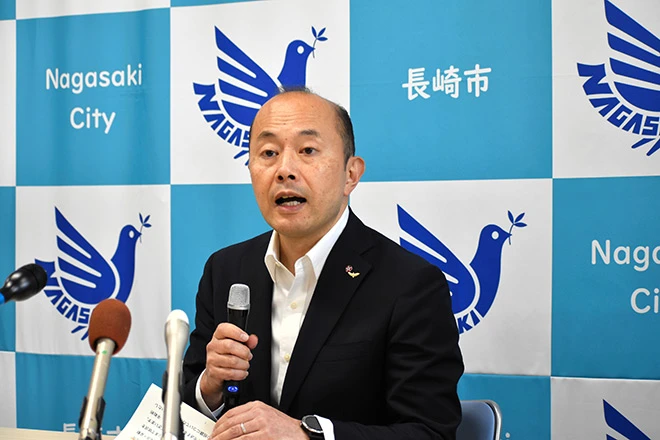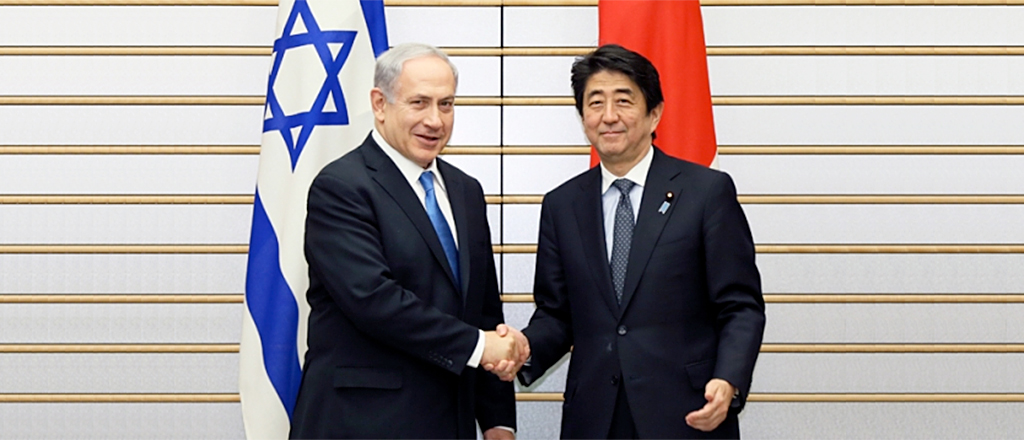Japan, a country known for its diplomatic neutrality in the Israel-Palestine conflict, has announced that they are sending an invite to the Palestinian envoy for the Nagasaki event. Israel, one of Japan’s closest allies, has not been invited to the event. Instead, they have called for a ceasefire. Japan was the only member of the G7 governments that condemned the Gaza attacks and the number of casualties it has caused in the Strip.
Shiro Suzuki, the Mayor of Nagasaki, and officials started sending out RSVP cards to all embassies in late May. However, since Russia’s invasion of Ukraine began in 2022, both Russia and Belarus have been barred from participating in the peace event. Suzuki announced his plans to send a letter to the Israeli Embassy in Tokyo, calling for an immediate ceasefire.
The peace ceremony, marking the 79th anniversary of the atomic bombing of Nagasaki, is set for August 9.

Tokyo’s Middle East Policy
Japan’s active pursuit of a more influential global leadership role is evident as it holds the G7 presidency this year and occupies a non-permanent seat on the UN Security Council. This heightened international presence underscores Japan’s ambition to be more prominent in global affairs.
At the same time, Japan’s vital interface in the Center East stays pivotal, given that the locale supplies nearly 90 percent of Japan’s oil needs. Consequently, regional stability in the Middle East directly impacts Tokyo’s energy security, making it a focal point of Japan’s foreign policy, often compelling it to adopt a cautious and balanced approach.
Critics often argue that Japan’s foreign policy closely mirrors its U.S. allies. However, the Middle East policy is one notable exception where Japan has charted its course. The divergence became particularly evident in 1973 when the Japanese government, under Prime Minister Kakuei Tanaka, issued the Nikaido Statement.
This statement recognized the legitimacy of the Palestinian state and called for restraint from Israel, marking a significant departure from the U.S. stance on the issue. The Nikaido Statement demonstrated Japan’s willingness to assert its position in international diplomacy, independent of its alliance with the United States.
Over the past five decades, Japan has consistently upheld the policy position outlined in the Nikaido Statement. In times of escalated tensions between Israel and Palestine, Japan has repeatedly called for restraint from both sides and has advocated for progress toward a two-state solution that addresses the aspirations and needs of the Palestinian people.
Japan’s consistent call for a peaceful resolution and balanced approach reflects its long-term commitment to stability in the Middle East. This commitment is also a strategic move to secure its energy needs while maintaining its independent foreign policy stance, demonstrating Japan’s nuanced approach to balancing its interests and values on the global stage.

Japan’s Diplomatic Relations with Israel and Palestine
Japan’s diplomatic engagement with Israel has been limited, primarily due to its heavy reliance on oil imports from Arab nations, many of which are adversarial towards Israel. The 1973 oil crisis, triggered by the Yom Kippur War, underscored Japan’s energy vulnerabilities and emphasized the need for a cautious approach towards Israel to maintain favorable relations with oil-producing Arab countries. This dependency forced Japan to navigate its foreign policy carefully to ensure a stable energy supply.
Despite the challenges posed by the oil embargo, Japan took a significant step towards supporting Palestinian self-determination by recognizing the Palestine Liberation Organization (PLO) in 1975. This move exhibits Japan’s nuanced approach to balancing its Middle Eastern interests, demonstrating a diplomatic strategy that acknowledges Israeli and Palestinian perspectives. By doing so, Japan managed to maintain its energy security while advocating for a two-state solution and expressing support for Palestinian aspirations.




1 Comment
Pingback: Japan Launches 'Tokyo Futari Story' App to Boost Birth Rate - INPAC Times